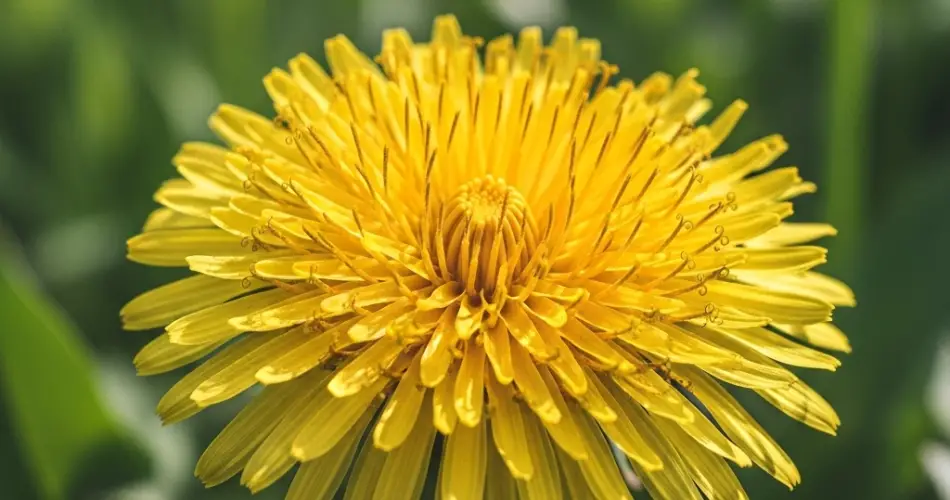Many people consider dandelions nothing more than an annoying garden weed. With their bright yellow flowers and fluffy seed heads that blow away in the wind, they often get pulled up and discarded without a second thought. But what if this “weed” was actually one of the most beneficial plants growing in your garden?
The dandelion (Taraxacum officinale) is a true treasure trove of health and gardening benefits. Used for centuries in traditional medicine and natural remedies, dandelions are not just edible—they’re powerful. Before you reach for the weeding tool, consider the incredible properties this humble plant offers.
What Is Dandelion?
Dandelion is a perennial herbaceous plant that grows wild across the globe. It thrives in lawns, roadsides, gardens, and meadows, often showing up in early spring and lasting through fall. Its bright yellow flower turns into a puffball of seeds that spread easily with the wind.
Every part of the plant—the root, leaves, flower, and stem—has useful applications in herbal medicine, cooking, and even soil improvement.
Health Benefits of Dandelion
1. Supports Liver Health
Dandelion root is widely known for its ability to stimulate liver function and aid detoxification. It has been used to treat liver disorders, improve bile production, and assist in the breakdown of fats.
2. Natural Diuretic
Dandelion leaves have diuretic properties, helping to eliminate excess fluids from the body without causing potassium loss, unlike many synthetic diuretics. This makes it useful for supporting kidney function and reducing bloating.
3. Rich in Nutrients
The plant is a nutritional powerhouse, packed with vitamins and minerals:
-
Vitamin A – essential for skin and eye health
-
Vitamin C – boosts immunity and aids collagen production
-
Vitamin K – important for blood clotting and bone health
-
Iron, calcium, magnesium, and potassium – support overall wellbeing
4. Aids Digestion
Both the leaves and roots act as gentle digestive tonics. Dandelion stimulates appetite, reduces constipation, and balances gut bacteria thanks to its inulin, a prebiotic fiber.
5. Anti-inflammatory and Antioxidant
Dandelion contains polyphenols that have anti-inflammatory and antioxidant effects, helping to neutralize free radicals and reduce inflammation in the body.
Culinary Uses
Far from being just medicinal, dandelion is also a versatile ingredient in the kitchen.
-
Leaves can be used in salads, soups, or sautéed like spinach. They have a slightly bitter, earthy flavor that pairs well with lemon and garlic.
-
Flowers can be used to make dandelion wine, syrups, or added to batters and teas.
-
Roots can be dried, roasted, and ground to make a coffee substitute or used in herbal infusions.
Make sure to harvest dandelions from areas free of pesticides or pollutants, such as sidewalks or roadsides.
Benefits for Your Garden
Dandelions also play a valuable role in the ecosystem and in your own backyard:
1. Soil Health
Dandelion roots aerate compacted soil and draw nutrients like calcium from deep underground. When the plant decomposes, these nutrients become available to other plants.
2. Pollinator Support
Dandelions bloom early in the season, offering nectar and pollen to bees and other pollinators when few other flowers are available.
3. Natural Mulch
Their broad leaves act like a natural ground cover, helping to retain soil moisture and reduce weed competition.
How to Use Dandelion at Home
For tea:
Dry the leaves or roots, then steep 1–2 teaspoons in hot water for 5–10 minutes. Drink up to two cups a day for detox and digestive support.
For salads:
Pick young, tender leaves from the center of the plant. Rinse thoroughly and combine with other greens.
For skincare:
The sap (white latex from the stem) has traditionally been used for wart removal and minor skin blemishes.
A Word of Caution
Although dandelion is generally safe for most people, those with gallbladder problems, allergies to related plants (like ragweed), or those taking diuretics, lithium, or blood-thinning medication should consult a healthcare provider before using it medicinally.
Conclusion
The next time you spot a dandelion growing in your yard or garden, think twice before pulling it out. What may look like a weed is actually a powerful ally for your health and your soil. Packed with nutrients, medicinal compounds, and ecological benefits, the dandelion is one of nature’s most underestimated gifts. Let it grow—or better yet, harvest it and put its benefits to good use.



